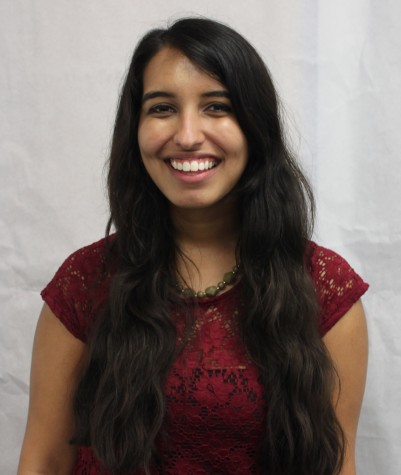Check and Mate with “Mates”; the Rooks and Rookies of Chess Club
February 13, 2017
Walking into the windowless room A1167, eyes immediately zero in on the moss green and white checkered placemats strewn in organized chaos across a long stretch of tables pushed together, dining room style. Ears hear playful comments (“I have a vicious pawn army coming to destroy you”) and the slight beeping coming from the glinting blue chess clocks perpendicular to the players, signaling that their opponents’ time had already begun. Mouths gape as each competitor is allotted a measly 30 seconds to respond to their opponents’ shrewd movements. Their one goal is to ensure that in the end, they alone have the upper hand and are able to utter the holy grail of words in a match: checkmate.
At the age of five, junior Dachey Lin began playing chess. With time and practice, Lin excelled. While competing, he earned the title of World Chess Federation (Federation Internationale des Echecs) master and now, he plays in a more relaxed manner as the founder and self-appointed president of Chess Club. In October, Lin channeled his love for chess and gathered a group of 27 individuals passionate about the game.
“My favorite part of chess club is the number of people who show up and play,” Lin said. “At Jasper, we had the club there too and we didn’t have that many people. Here, there is a lot more interest.”
Due to increased demand, Lin was able to expand meeting times to encompass every Wednesday during A and B lunch rather than merely every other week. The large turnout enabled Lin to launch the first ever chess tournament at West. Although the tournament began in November, it has yet to conclude.
“Meetings usually last the entire lunch,” Lin said. “However, for the tournament, we have to meet after school to have the top two from A lunch and the top two from B lunch play against each other, which delays the process.”
For normal meetings, each match begins and ends within one lunch period and three matches take place concurrently, with the possibility of more depending on the number of individuals interested. Junior Michael Ma, a good friend of Lin’s and fellow club member, went to summer chess camp at a young age which sparked his long-term fascination with the pursuit of checkmate. He was especially enticed by the direct benefits resulting from playing, including improved mental health and intelligence.
“It helps you train your brain,” Ma said. “You think more. It’s good for helping you improve your brain capacity and expand your thinking processes.”
Senior Abhinav Kasamsetty also cited the strategizing proponent as part of his attraction to the game. Every move must be made with considerable forethought as one operates on the idea of self-preservation, but also must remain on the offense in order to succeed.
“It’s just fun trying to think about what to do, how to overcome your opponent,” Kasamsetty said. “You have to anticipate what your opponent is going to do and counteract that.”
Kasamsetty denotes the club’s universal appeal as a laid-back form of entertainment on campus and encourages people who are interested to not be intimidated by the prospective challenge. The colloquial nature of the meets and sheer optimism of the members creates an environment that is both positive and stimulating. A potential member may even hear a chipper comment of encouragement as they cross the threshold.
“People should join because it’s not extremely competitive,” Kasamsetty said. “It’s just a casual place where you can learn from each other and just hang out while playing chess and having fun.”



